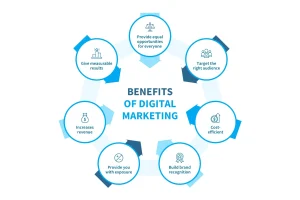Java Full Stack Developer Course
In today’s fast-growing tech world, the demand for skilled developers is higher than ever. Among all development roles, the Java full stack developer stands out as one of the most in-demand and versatile positions. If you’re looking to build a successful career in software development, understanding both front-end and back-end technologies is crucial—and that’s exactly what full stack development offers.
What is a Full Stack Developer?
A full stack web developer is someone who can build both the front end (what users see) and the back end (server, database, APIs) of a web application. These professionals understand how to manage everything from UI design and development to server-side scripting and database integration.
What Does a Java Full Stack Developer Do?
A Java full stack developer works with technologies such as:
- Front-end: HTML, CSS, JavaScript, Angular, or React
- Back-end: Java, Spring Boot, REST APIs
- Database: MySQL, PostgreSQL, MongoDB
- Tools: Git, Docker, Jenkins, Maven
They are responsible for building responsive user interfaces, writing business logic, connecting applications to databases, and deploying them to servers.
Why Become a Full Stack Developer?
If you’re wondering why you should become a full stack developer, here are a few key reasons:
- High job demand across industries
- Better salary compared to specialized developers
- Opportunities to work on diverse projects
- Faster career growth and promotion potential
- Flexibility to work in startups, enterprises, or as a freelancer
Career Options: From Full-Time to Freelance
The full stack skill set opens doors to various career paths:
1. Full Stack Software Engineer
These professionals work in enterprise environments, collaborating with teams to build scalable applications.
2. Freelance Full Stack Developer
Ideal for those who want flexibility and freedom. You can work with global clients, set your own rates, and manage your schedule.
3. Startup or Tech Company Roles
Full stack developers are highly valuable in startups, where a single person may need to handle the entire tech stack.
Python Full Stack Developer vs Java Full Stack Developer
Both Java and Python are popular choices for full stack development. Here’s how they compare:
| Feature | Java Full Stack Developer | Python Full Stack Developer |
|---|---|---|
| Back-end Framework | Spring Boot | Django or Flask |
| Front-end | React, Angular | React, Angular |
| Popularity | Highly used in enterprise apps | Widely used in startups and AI/ML |
| Performance | Excellent for large-scale apps | Great for rapid development |
If you’re leaning toward data science or rapid prototyping, becoming a full stack Python developer may be ideal. But for large-scale enterprise apps, Java full stack remains a strong choice.
Full Stack Python: A Growing Trend
The term full stack Python refers to developers who use Python-based technologies for both back-end and, to some extent, front-end development. Combining Django or Flask with front-end frameworks like React or Vue.js gives developers the ability to build fast, scalable applications entirely in Python.
Skills You Need to Become a Full Stack Developer
To succeed as a full stack developer—whether in Java or Python—you’ll need to master:
- Front-end languages: HTML, CSS, JavaScript
- JavaScript frameworks: React, Angular, or Vue
- Back-end languages: Java, Python, or Node.js
- Databases: SQL and NoSQL
- Version control: Git and GitHub
- DevOps tools: Jenkins, Docker, Kubernetes
Who Should Learn Full Stack Development?
This career path is ideal for:
- Students or graduates looking to enter tech
- Software testers or backend developers wanting to expand skills
- Professionals aiming to switch to tech from non-technical fields
- Freelancers interested in building complete applications for clients
Consulation
Whether you aim to work as a Java full stack developer, explore opportunities as a freelance full stack developer, or transition into a full stack software engineer role, the future is bright. With the right training, tools, and commitment, you can become a full stack developer capable of building modern web applications from end to end.
Choosing between Java and Python depends on your interests and the type of applications you want to build. No matter the path you choose, mastering full stack development will put you at the center of innovation in tech.

